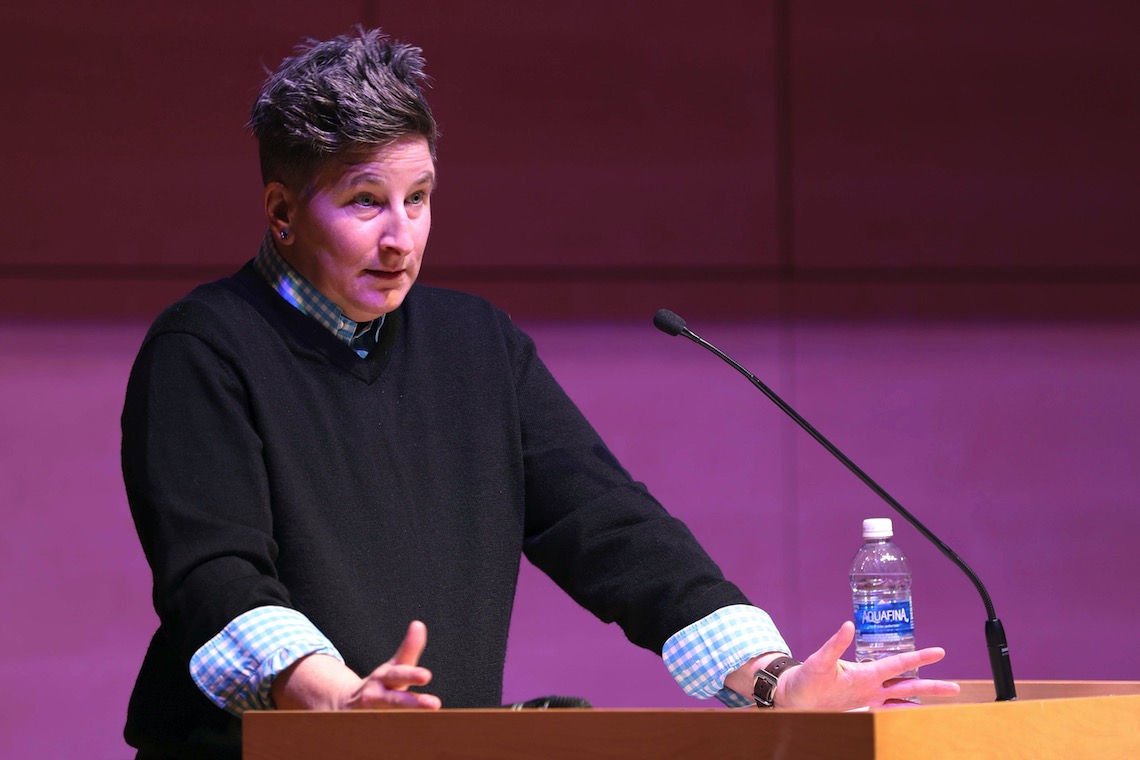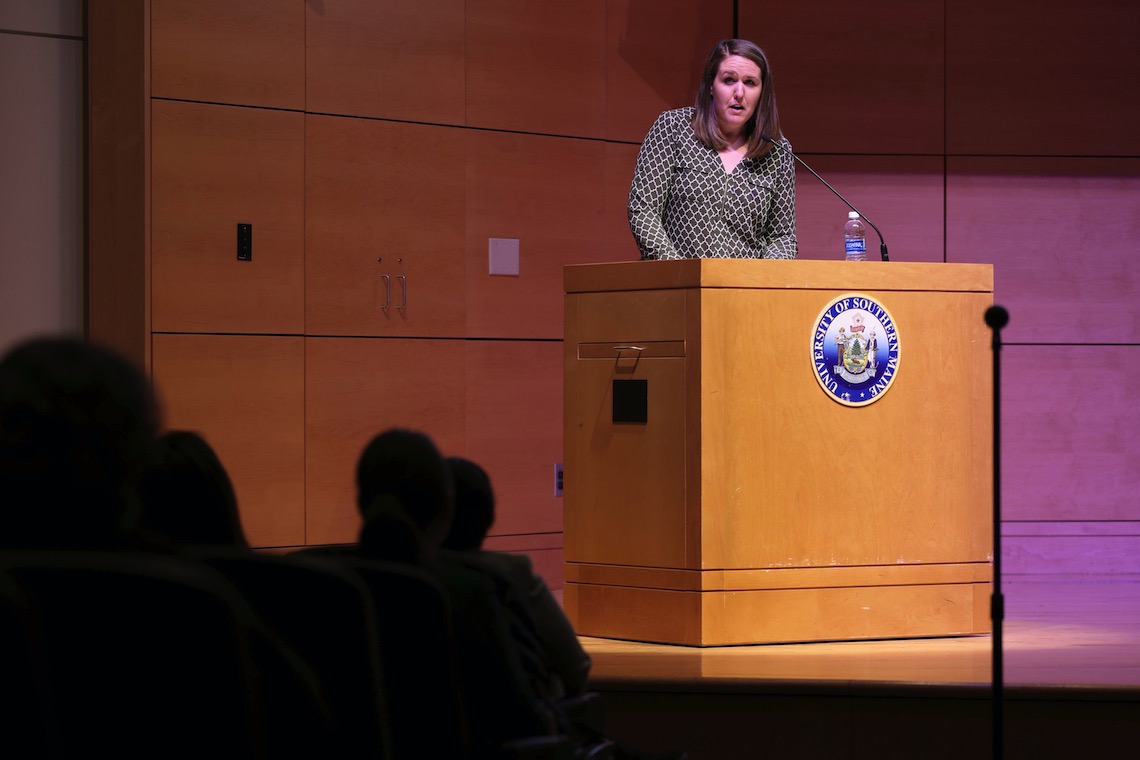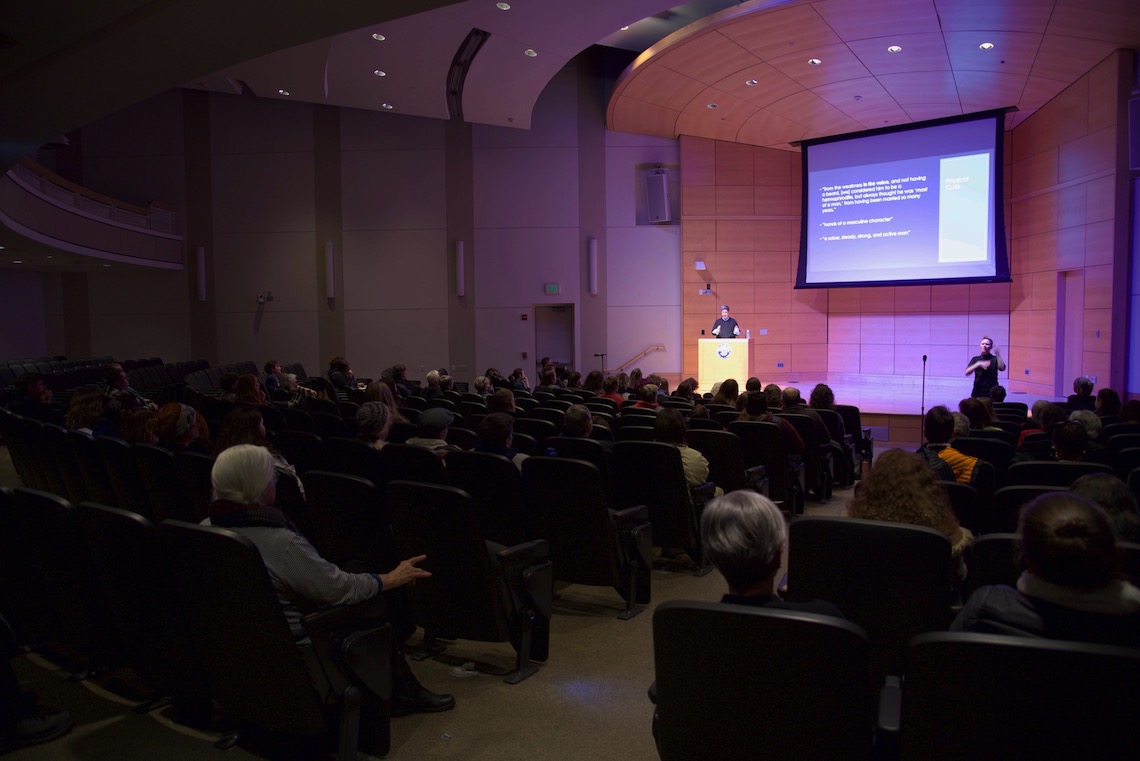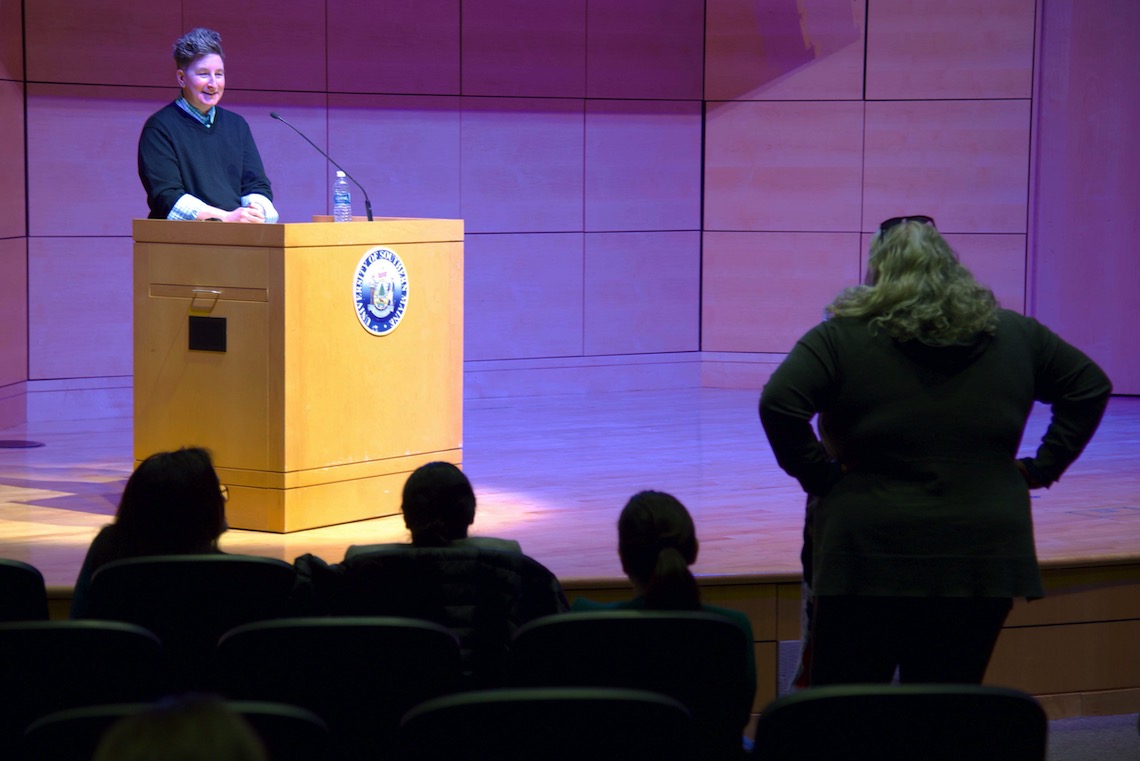
News reports from the 18th and 19th centuries didn’t have the vocabulary to describe what it meant to be transgender. Flawed as they were, early attempts to tackle the subject left an important record of a struggle that continues to the present day.
Dr. Jen Manion brought those stories to the University of Southern Maine’s Portland Campus on March 22. The presentation drew a receptive audience to the Abromson Community Education Center.
“One of the most frequently cited arguments right now in American political life against transgender rights is that, quote, ‘This trans thing is new.’ And that’s inaccurate,” said Manion. “As long as we don’t bring these histories to the forefront and to people’s awareness, then they will keep spreading that lie and using that to justify their policies.”
Manion — who uses they/them pronouns — is an Amherst College professor specializing in the fields of History, Sexuality, and Women’s and Gender Studies. Their latest book is “Female Husbands: A Trans History.” The title came from a term that Manion encountered frequently in the course of their research that extended from colonial times to just before World War I in the United States and United Kingdom.

Manion dug through newspaper archives and public records to learn about people who were assigned female at birth but lived as men and often married women. Reporters called them “female husbands.” Their stories made news when they were forced to defend their gender identities against legal challenges.
USM’s Women and Gender Studies Program (WGS) jointly hosted Manion’s presentation along with the Provost’s Office. One of the chief organizers was Dr. Ashley Towle, Assistant Professor of History and Programming Chair of WGS.
“We have the opportunity, as a public institution, to educate people on this history. And there are so many lessons that we can learn on how to combat prejudice and discrimination that we’re facing today,” Towle said. “It’s really important that we learn from the past so that we can figure out how we can move forward from it.”
After Towle’s introductory remarks, Manion took the stage and recounted several of the personal histories that were featured in “Female Husbands.” Albert Guelph’s story showed it was possible to fight back and win in court.
Soon after moving to central New York state in the mid-1850s, Guelph married a woman. Guelph’s father-in-law disapproved and arranged a physical exam. Based on the examiner’s determination that Guelph was a woman, a judge sided with the father-in-law. Guelph was convicted of vagrancy and sent to jail for 90 days.

Guelph contested the ruling, as imprisonment for vagrancy was capped at 60 days. The defense worked and Guelph walked free. The case also revealed that no law existed in New York specifically prohibiting cross-dressing.
“Often, these female husbands were renowned citizens and leaders in their society, which is incredible because they were accepted until they weren’t,” said History major Corra St. Pierre in reaction to the stories that Manion shared.
The health system could be even more harsh than the legal system, as Manion illustrated with the story of Joseph Lobdell. Given the name Lucy at birth, Lobdell lived as a man for years, got married, and made a home in northeastern Pennsylvania. That was all ripped away by Lobdell’s brother. In 1879, he had Lobdell forcibly committed to a mental institution.
Advances in medical science through the 19th century often made life worse for the trans community. Doctors became more respected as their knowledge and training improved. When they diagnosed trans people as mentally ill, their judgment carried weight. The result for Lobdell was years of institutionalization instead of a short jail stay or fine.
In another way, the inequities of the era helped protect trans narratives from erasure. Manion spoke about how hard it had been in researching other books to find documentation about women’s lives because they weren’t treated with the same importance as men. When it came to Manion’s research of trans men, the historical records proved more generous.

The research still required hard work. Manion had to comb through mountains of original sources and documents. Much of the material previously went untouched for decades or centuries since it dealt with a segment of society largely overlooked by historians until recently.
“I think it’s really interesting to be thinking about history from queer lenses, and especially something that isn’t talked about very much or very well known,” said Ty Bolduc after hearing Manion’s presentation. Bolduc is a sophomore majoring in Sociology and WGS.
Manion encouraged discussion by taking questions from the audience. Earlier in the day, Manion extended that same invitation to a class of students, including Kayla Graffam. She’s a junior majoring in History and Secondary Education. Graffam was inspired by the exchange to pursue her own research into the lives of trans women.
“It’s so important to have these conversations in learning environments,” said Manion. “It’s the responsibility of our colleges and universities to lead the way and really create opportunities that are conducive to real open mindedness, real curiosity, and real learning. In a place like this, we can dig deep and really think through some things that actually require care.”

